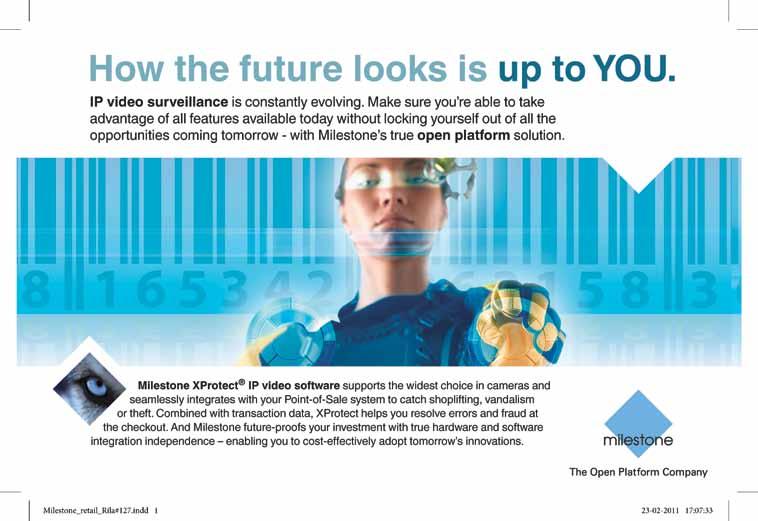Supply chain
Ten Years Later, Uncle Sam Wants to Be Your Security Manager N o one could have predicted exactly how September 11th would impact our lives and our profession. On that fateful morning I was in the air on my way to visit Target’s Indianapolis distribution center, oblivious to the new world we would encounter upon landing. What was clear is that the dastardly attacks on the World Trade Center, the Pentagon, and that open field in Pennsylvania were going to change the way the security game was played. We knew that our profession would be called upon to leverage our expertise and become “deputized” to the cause of securing our nation’s commerce and her economy. From that perspective we have stepped up to the challenges we face in the modern era and have gone a long way in establishing our credibility in board rooms and in the eyes of government officials around the world.
Not All Changes for the Better
Much has changed in the past ten years, but not all for the better. The vision of a partnership between private-sector security professionals and the government is alive and well in programs such as C-TPAT (Customs-Trade Partnership Against Terrorism) and OSAC (Overseas Security Advisory Council). The ability to share strategies, intelligence, and resources has never been greater. The danger of this level of interest in corporate security programs by government entities has a serious downside, however. As an example, in the past few weeks Union Pacific Railroad was required by U.S. authorities to spend an additional $50 million on its security program. Union Pacific was found to have unwittingly been the vehicle for drug smugglers on the U.S.-Mexican border. There may be cause for the company to rethink its security strategy as a result of these incidents, but being forced to spend $50 million on a security program that includes funding a “fusion center” with Customs and Border Protection (CBP) sounds a bit more like extortion. While the end result may be a more secure company and a more secure border, there is a profound difference between volunteering to do our part in the spirit of partnership and being required to do so through the use of regulatory authority. The ends do not necessarily justify the means. In yet another instance of overreach, CBP has once again targeted Gibson guitars for its alleged lack of
by Kelby Woodard Woodard is a founding partner of Trade Innovations and the Trusted Trade Alliance, which specialize in security, customs compliance, and supply-chain strategy consulting through offices located on five continents. He also cofounded TRG Direct, which provides direct filing of customs entries utilizing an Internet-based software solution. Woodard is the former director of supply-chain security at the Target Corporation and a former board member of the International Cargo Security Council. He can be reached at kelby.woodard@tradeinnovations.com.
oversight of its import supply chain. This company has been importing wood from around the world for decades. Then along came the Lacey Act in 2008 that required importers of woods to report details on the species and genus of the tree in an effort to protect endangered trees around the world. The Act did not stop there, however.
The strength of the post September 11th security regime is based on true partnership and flexibility. We must be vigilant to ensure it does not fall victim to an overzealous federal government. The law also requires CBP to enforce the laws of the exporting country as well. The result is that the CEO of a well-respected American company has the potential of serving time in jail over the violation of an obscure Indian law that prohibits the export of “sawn wood.” The U.S. government has interpreted Indian law to say the wood Gibson imported was falsely declared as veneers because some assembly is still done in the U.S. rather than India. Fortunately, the solution to this issue was clearly outlined by the federal investigator. Unfortunately, his recommendation was for Gibson to outsource their operations and avoid complying with U.S. import laws.
Watch for Overzealous Regulations
In a time where we should be encouraging companies to create jobs in this country, we have laws and the people who enforce those laws encouraging companies to limit their global supply chains because U.S. law is “too complex.” While the Gibson issue may not be directly related to the security profession, the bureaucratic inflexibility found in the Lacey Act is a lesson for us all. The strength of the post-September 11th security regime is based on true partnership and flexibility. We must be vigilant to ensure it does not fall victim to an overzealous federal government.
LP Magazine | September - October 2011
57






